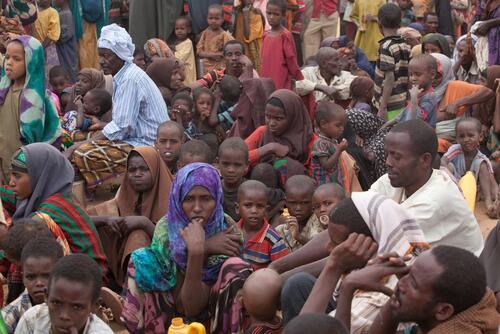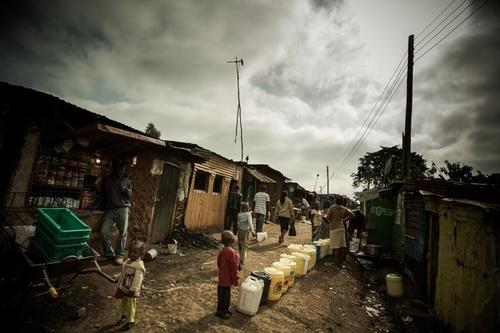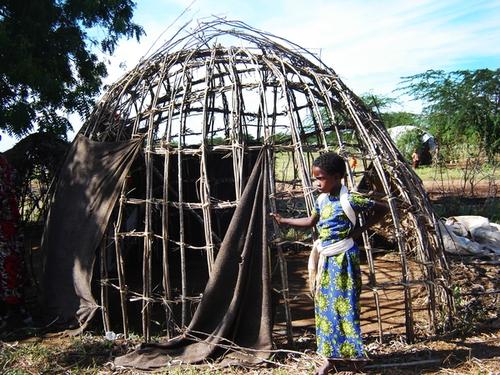Médecins Sans Frontières (MSF) is deeply concerned about the medical consequences following recent public statements from Kenyan authorities exhorting thousands of Somali refugees in Kenya to leave urban areas and go to remote and already saturated camps. Any potential influx of new arrivals will put further pressure on the existing precarious situation.
In the Dadaab refugee camps, in northern Kenya, the rainy season is increasing the risk of disease and epidemics among an already extremely vulnerable population.
“The assistance provided here in Dadaab is already completely overstretched and is not meeting the current needs,” says Dr. Elena Velilla, MSF’s Head of Mission in Kenya. “Furthermore, due to the ongoing insecurity in the camps, MSF would not be able to scale up or respond to a new emergency situation if there is an influx of new arrivals in the camps."
Over the last month, the number of children admitted to the MSF hospital for severe acute malnutrition has doubled and around 300 children have been hospitalised. Most of them are also suffering from acute watery diarrhoea or severe respiratory tract infections which reflect the poor living conditions in the camp.
“Since the beginning of December and the heavy rains which have caused floods, the shelter and sanitation situation that was already precarious in the camps, has become even more deplorable,” continued Velilla. “This has had dramatic consequences on the population’s health.”
With a 200 bed hospital that serves as a referral facility for several camps in Dadaab, MSF is one of the main health providers, but it has been struggling to cope with the considerable and growing medical and humanitarian needs.
Since the camps were established 20 years ago, emergencies have consistently plagued Dadaab, with floods, nutritional crises and disease outbreaks commonplace. According to the UNHCR, eleven epidemic outbreaks were reported in 2012. Today, sporadic cases of cholera and hepatitis E continue to be reported throughout the camps.
With conditions continuing to deteriorate, MSF therefore fears the impact of the Kenyan government’s decision on the already disastrous medical and humanitarian situation of the refugees living in Dadaab.
MSF activities in Dadaab
MSF runs a hospital in Dagahaley, one of the five refugee camps in Dadaab. MSF teams carry out an average of 14,000 outpatient medical consultations each month and admit 1,000 patients from the refugee and host communities to the hospital. There are currently more than 300 severely malnourished children enrolled in the nutrition programme, 63 of whom were admitted to the intensive care unit this week as complicated cases.
More than one year ago, in October 2011, two MSF aid workers, Montserrat Serra and Blanca Thiebaut, were abducted in Dadaab refugee camp while carrying out emergency assistance for the Somali population. They remain in captivity, and MSF, while continuing to respond to acute crises, has put on hold the opening of any non-emergency projects in Somalia until their release.







